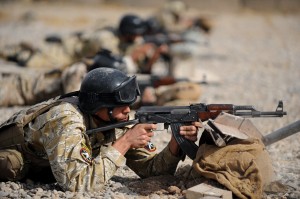 The White House Administration’s push to have a smaller military now faces Congresses scrutiny. The Congress has for years battled the vision of the Pentagon for a new strategy in security.
The White House Administration’s push to have a smaller military now faces Congresses scrutiny. The Congress has for years battled the vision of the Pentagon for a new strategy in security.
Chuck Hagel the Secretary of Defense has proposed to shrink the military to its smallest in over 75 years, hoping it can be reshaped after more than 10 years fighting wars in Afghanistan and Iraq and due to the fiscal constraints that were set by lawmakers in Washington.
On Monday, Hagel’s plan was unveiled and has already raised red flags amongst leading Democrats and Republicans.
Chairman of the Senate Armed Services Committee, Democratic Senator Carl Levin said there would be huge challenges.
Lawmakers, who just backtracked from cutting benefits for veterans by only 1% this month, appear not in the mood to weigh the difficult, even if necessary, decision on reductions in defense, especially as the country is gearing up for November’s midterm elections.
Congress has resisted the cutting of aircraft and tanks that the military does not want, or accepting the closings of bases that would hurt their re-election chances in their districts.
They have advocated bigger increases in pay for members of the services that the government requested.
In addition, although Congress agreed on a number for the overall military budget for 2015, which was just below $500 billion, there remain major decisions needed on how the money should be allocated.
President Obama will hand over his budget next week to Congress.
The core of the plan foresees a U.S. military as sized for large, protracted ground wars. With more emphasis to be put on agile, versatile forces, which can project great power over big distances, including in Asia.
Hagel’s plan calls for the active-duty army to contract to between 445,000 and 450,000 soldiers from its current 522,000. If that were to happen it would make the army the smallest it has been since prior to the entering of the Second World War.
